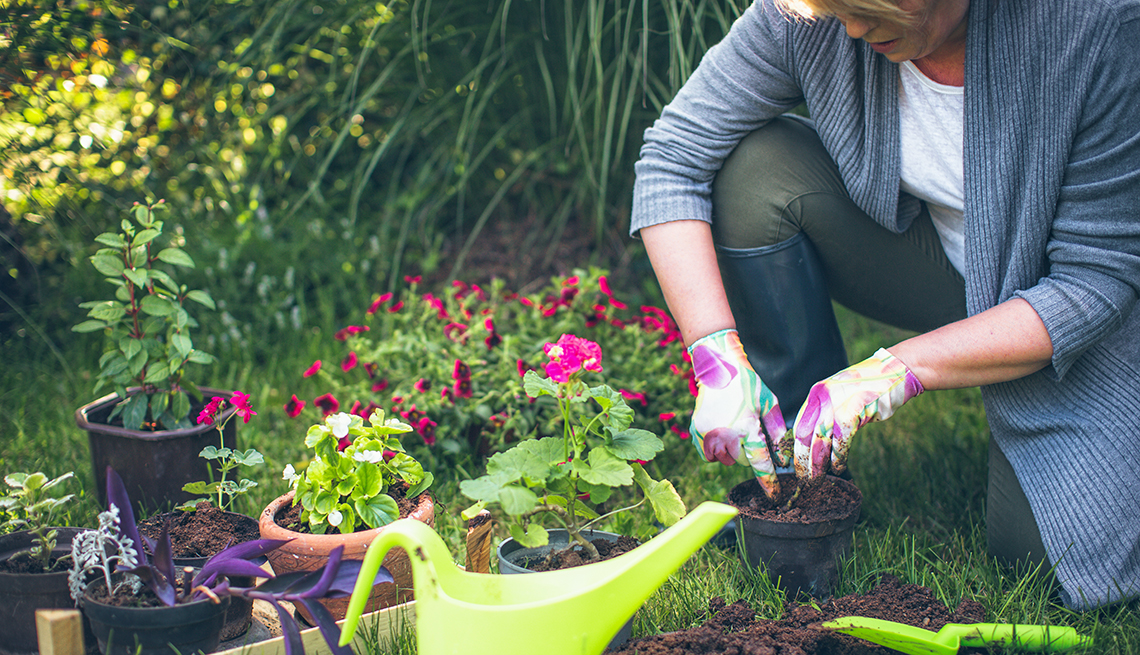Staying Fit
In addition to providing nutritious veggies and fruits for your dinner table and beautiful flowers to decorate it, gardening offers a variety of health benefits.
1. Exposure to vitamin D
Vitamin D increases your calcium levels, which benefits your bones and immune system. A 2014 Italian study, published on the National Institutes of Health website, found that exposure to sunlight helped older adults achieve adequate serum vitamin D levels. So outdoor activities like gardening are a perfect way to get your sunshine while pursuing a fun hobby. (But don’t forget the sunscreen to protect your skin, and sunglasses for your eyes.)


AARP Membership— $12 for your first year when you sign up for Automatic Renewal
Get instant access to members-only products and hundreds of discounts, a free second membership, and a subscription to AARP the Magazine.
2. Decreased dementia risk
A 2006 study found that gardening could lower risk of dementia by 36 percent. Researchers tracked more than 2,800 people over the age of 60 for 16 years and concluded that physical activity, particularly gardening, could reduce the incidence of dementia in future years.
3. Mood-boosting benefits
A study in the Netherlands, cited by CNN, suggests that gardening fights stress even better than other hobbies. Participants completed a stressful task and were then told to read inside or go outdoors and garden for 30 minutes. The gardening group reported better moods afterward, and their blood tests showed lower levels of the stress hormone cortisol.
4. Enjoyable aerobic exercise
Gardening is a great form of aerobic exercise; plus, you might become so engrossed in your work that you don’t even realize you’re breaking a sweat. Pulling weeds, reaching for various plants and tools, and twisting and bending as you plant will work new muscles in your body and help with strength, stamina, and flexibility.
5. Helps combat loneliness
After retirement, many people struggle with fewer socialization opportunities, and community gardens can be a fun way to engage with others while providing benefits to neighborhoods. According to the Centers for Disease Control and Prevention, community gardens are "collaborative projects on shared open spaces where participants join together in the maintenance and products of the garden, including healthful and affordable fresh fruits and vegetables."
The American Community Gardening Association offers a locator tool for finding your nearest community garden. “The association recognizes that community gardening improves people’s quality of life by providing a catalyst for neighborhood and community development, stimulating social interaction, encouraging self-reliance, beautifying neighborhoods, producing nutritious food, reducing family food budgets, conserving resources and creating opportunities for recreation, exercise, therapy, and education.”
To get started on your gardening adventure, visit Better Homes and Gardens or the National Gardening Association for helpful advice on the many varieties of plants and flowers available.
































































